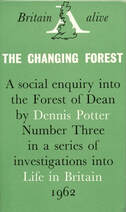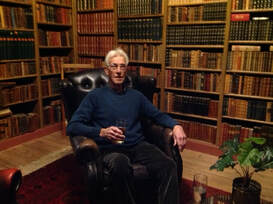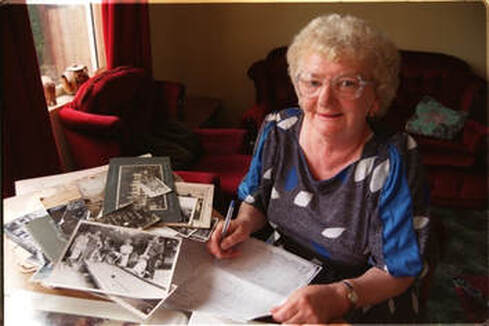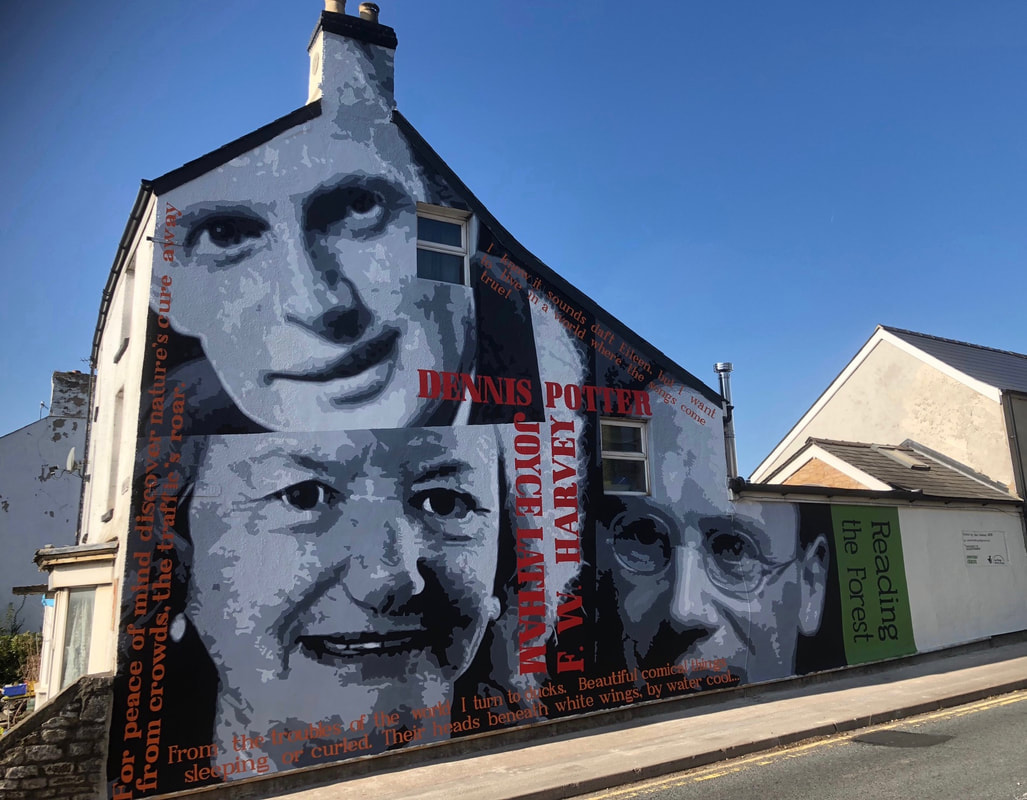|
In a new podcast from our sister-project, Voices from the Forest, local people describe life in the Forest of Dean during the latter half of the twentieth century. This was a period of transformation for the Forest as old industries and centuries-old traditions gave way to new factories, and new social, economic and cultural aspirations. It was a rich period too for literary activity in the Forest. The nineteenth century had seen the birth of Forest of Dean literature with the work of Catherine Drew, Richard Morse, William Wickenden, and Phillip Ducarel; the mid to late twentieth century was arguably its golden age. Winifred Foley, Leonard Clark, Harry Beddington, Joyce Latham, and Dennis Potter were amongst those Forest-rooted writers working on memoirs, poetry, drama, fiction and commentary that described the subtly shifting patterns of people’s lives, places, and landscape as the Forest of Dean adjusted to the reality of a changed post-War world. Since 2015 Voices in the Forest has been interviewing and recording Forest of Dean residents’ recollections of life in the Forest (and sometimes periods of life spent further afield), following their lives from childhood and school, to first jobs, careers, relationships and families. The interviews offer a fascinating background to the period in which Winifred Foley was ‘In and Out of the Forest’, before eventually settling back here; when Harry Beddington was writing dialect plays for the local stage and, honing his poetry, humour and polemic into what would become ‘Forest of Dean Humour’ and ‘Forest Acorns’ published in the early 1960s. Leonard Clark meanwhile had left the Forest before the War but this second half of the century was when he documented life in the earlier Forest in his memoirs such as ‘Green Wood’ and ‘A Fool in the Forest’, when he eulogised about the Forest in his poetry, and broadcast about it in programmes on BBC Radio.  Dennis Potter too had by this time moved away, first for university then to work for the BBC, later becoming one of the country's foremost television and film dramatists. But for him too, the Forest was ever a source of inspiration and subject matter. Even before it featured so memorably in his series ‘Pennies From Heaven’ and ‘The Singing Detective’, he wrote about it extensively in his first book, ‘A Glittering Coffin’. He returned to it in full just a few years later with his book ‘The Changing Forest’, a masterpiece of proto-New Journalism. In it Potter explored his personal relationship with the people and places of the Forest whilst at the same time delivering his pin-sharp analysis of the economic and social realities of a community that was at a potentially pivotal moment in its history. This is the world described in depth too by the remarkable Voices from the Forest recordings drawn on in the new podcast series over six episodes. Episode 1 begins with the period immediately preceding that of ‘The Changing Forest’: the Second World War. As Voices from the Forest Co-Director and presenter of the podcast Roger Deeks puts it, the War was something that “would shake the dust off the Forest and leave it a different place”. In the first episode we hear how the War brought an influx of people into the Forest such as Lumber Jills, G.I.’s and Italian and German Prisoners of War, and whilst there was the threat of stray bombs or the fear of invasion, it was also a time of liberation for some Foresters as many of the older restrictive social norms simply fell away. For anyone interested in the fascinating and fertile background to those prolific Forest authors of the latter-twentieth century, this podcast is a must listen! Episode 1 of the Voices from the Forest Podcast is published on Monday 1st February (2021) and can be listened to, from then on, via the 'Podcast' page on the Voices from the Forest website (and if you've never listened to podcasts before it's easy: just go the page and click the 'play' button).
0 Comments
 Alan Jenkins joined the Royal Forest of Dean College when it opened in 1985. Well-liked by students Alan taught Geography and adult education classes. He took early retirement in 1996 and now lives in Denmark. Alan recently got in touch with us to recall the day one of the Forest's most popular poets came into to talk to his class.... After moving to live in Denmark, I was invited to join a group of retired Danes who meet (met!) regularly and informally, to practise their reading, writing and conversation skills in English. They call themselves 'The English Group'. Initially they were expertly organised and led by a former exchange colleague of mine. Since her sad demise, most of them elected to continue meeting once a week through Autumn and Spring, with a break over the summer. Between themselves, they have been quite capable of choosing themes to discuss and books to read in English, without much input from me. Way back, when living in Coleford, I came to know Joyce and her husband Bob, and it is a tribute to Doug McClean of The Forest Bookshop, who published the work of local authors, that her poems and two volumes of autobiography came out in print. It was around that time, when the Royal Forest of Dean College at Five Acres was still thriving, that I invited Joyce to come in and meet the adult students on our Access to Higher Education course. She was a little reluctant at first, but after explaining that the idea was to give them a brief respite, both from the purely academic side of things, and no doubt from the sound of my voice, she consented. Besides, I thought, they would be sure to learn something interesting about The Forest of Dean in the process. Joyce comemorated celebrated in the West-Dean authors mural by artist Tom Cousins for Reading the Forest. Painted on the former pub Help Me Through The World (once also the Masons Arms) in Coleford where Joyce once worked.
What's the connection between Edwardian author Tom Bevan, a Spanish plot to burn down the Forest of Dean, magus Dr John Dee and, 'fake news'?
Join us as we explore the 1907 novel Sea Dogs All! We find out about its author Tom Bevan and his connections to the region, and about the audience he was writing for. How much of his story was pure fiction, and how much historical fact? What was the Forest like at the time of the Spanish Armada, and why would anyone want to destroy the woods of the Forest? And, what on earth is the meaning of our title for episode 1 , 007's Angel and the Plot to Burn the Forest? Presented by Dr Jason Griffiths and Dr Roger Deeks. Featuring interviews with specialist in children's literature Dr Debby Thacker and, historian and HM Verderer Dr Ian Standing. Also featuring the voices of 'El Draco', Martha Beard, Barney Rowe, and Rachel Griffiths. |
Archives
June 2024
|



 RSS Feed
RSS Feed


